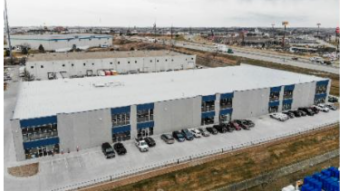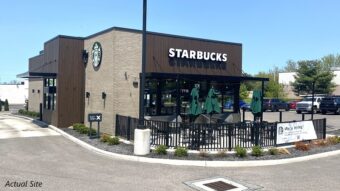The state of the net lease market? It remains strong. And this is something that doesn’t look to change throughout the rest of this year and into next, according to the speakers at REJournals’ and Midwest Real Estate News’ fourth annual Net Lease Summit held last week in Chicago.
More than 180 attendees gathered July 26 at the University of Club of Chicago to watch the biggest names in the net lease sector discuss the strengths of this market, the challenges it faces and the reasons why net lease properties remain a favorite of investors.
A common theme throughout the conference? Attendees and speakers wondered when lease, sales and development activity would slow down.
Attendees, of course, had no concrete answer. No one, after all, can predict when a sector is nearing the end of its hot cycle. Gordon Whiting, managing director and portfolio manager with Angelo, Gordon & Co., summed it up best: “When will the end of the cycle get here?” he asked. “Is that end coming now, six months from now or a year from now? I honestly don’t know. What I do know is that the buyers and sellers are interested in the better properties right now. And those properties will continue to attract interest.”
Laith Hermiz, chief operating officer with Agree Realty Corporation, took a similar approach. Looking at the retail net lease sector, Hermiz said that certain retailers today are attracting more attention than others.
Other retailers? They are struggling to compete with the Internet and to meet the changing wants of consumers. These retailers are closing stores in soaring numbers.
“There are the haves and the have-nots in the retail sector,” Hermiz said. “Those retailers that are doing well are the ones taking an omnichannel approach. They have their physical stores, but they also have a strong online presence. Those are the retailers who will continue to do well.”
Hermiz said that with the threat of Amazon constantly looming, those retailers who offer services and goods that consumers can’t get online are the ones who will thrive. He pointed to tire stores as an example. Tire stores might not seem exciting. But most consumers will buy tires from a physical store, not from a Web site, Hermiz said.
Other retailers well-situated to survive in an Amazon-dominated world include home-improvement retailers, discount grocery stores and restaurants, Hermiz said.
Jesus Araiza, managing director with Leon Capital, also pointed to decidedly unsexy net lease properties as being particularly successful today. He said that retailers working in the auto space are performing well, including those offering oil changes and car washes.
The reason? Again, consumers can’t order up an oil change online.
“And I don’t think we’ll be seeing a rise in people changing their own oil anytime soon,” Araiza said.
Despite its steady nature, the net lease market does face challenges. Chief among them, of course, is the rise of Amazon and online shopping. Dave Piasecki, chief investment officer with Elm Tree Funds, said this threat means that owners have to be more proactive in managing their buildings.
“Amazon will continue to disrupt everyone,” Piasecki said. “Owners today have to help their tenants, they have to help their properties evolve. You can’t have a 15-year passive landlord today. We have to be nimble. We have to pay attention to what tenants need. Otherwise, you’ll have a dark building. You mght still have a lease, but you’ll have a dark building, and no one wants one of those.”
Nico DePaul, senior managing director with the NNN Pro Group of Marcus & Millichap, said that one sector benefitting from Amazon’s disruption is industrial. A growing number of companies are evaluating their system of warehouse and distribution centers, with many looking to add new facilities.
The ultimate goal is to get their products to their end users as quickly as possible. This often means adding warehouse and distribution space closer to the heart of urban areas.
“Industrial assets are a more important part of the business plan of companies today,” DePaul said. “Before, companies would put their industrial assets far outside the cities. That is changing today.”
The threat of rising interest rates, of course, makes everyone working in the net lease sector nervous. Not surprisingly, interest rates came up often during the conference.
The good news? The consensus was that interest rate increases haven’t yet slowed the activity in net lease.
“The 1031 market is robust and strong,” said Chad Firsel, president of Quantum Real Estate Advisors. “We were getting maybe 20 calls a week on average a year ago. Right now, we are getting about 16 on average. So it’s not quite as busy, but it’s still busy. Interest rates have only nominally impacted this market. It is still robust.”
Mark West, senior managing director with HFF, agreed.
“The CMBS market is very vibrant,” he said. “The life insurance market is as vibrant as it has ever been. There is no shortage of capital out there.”



